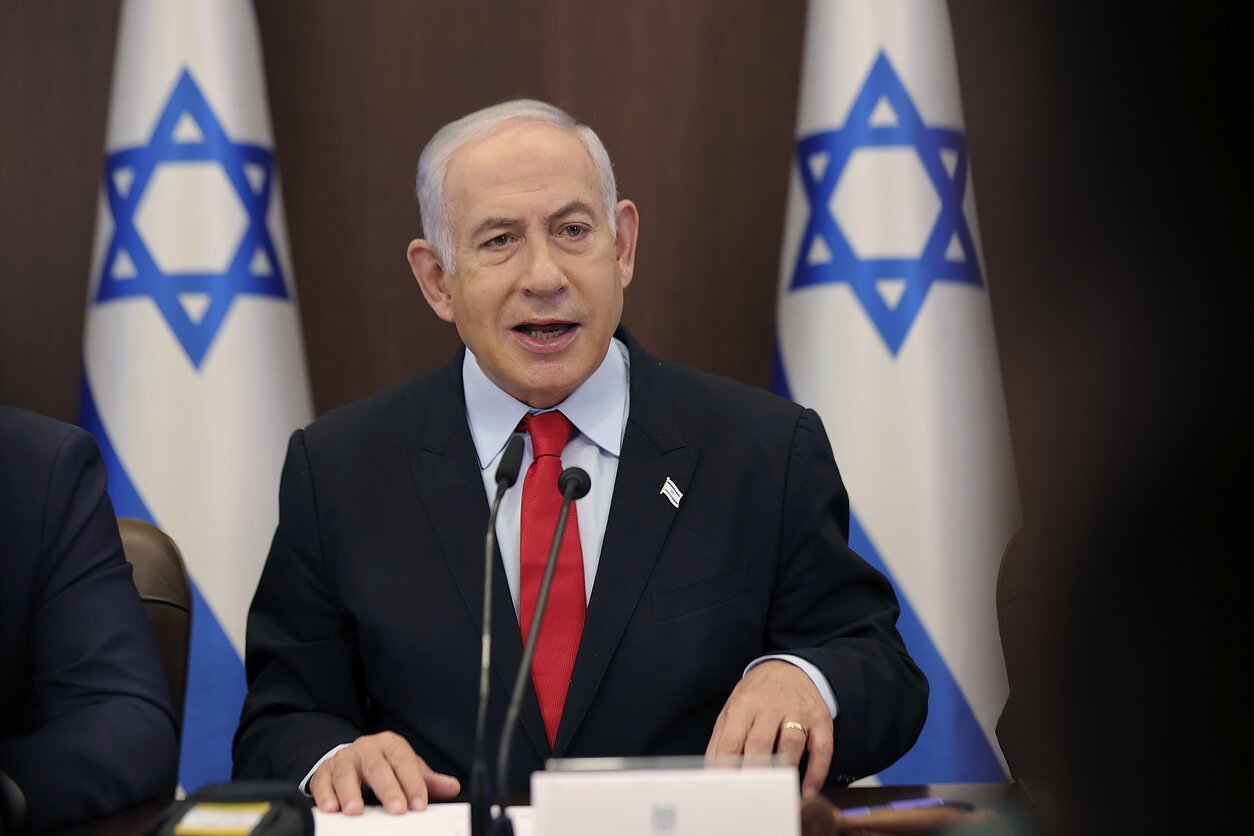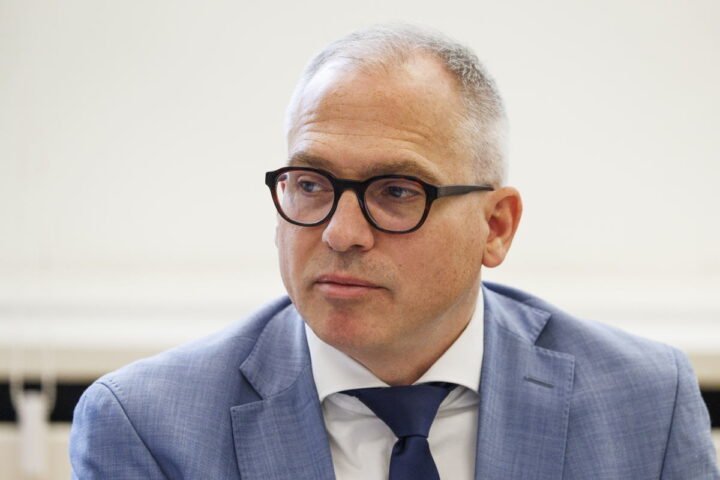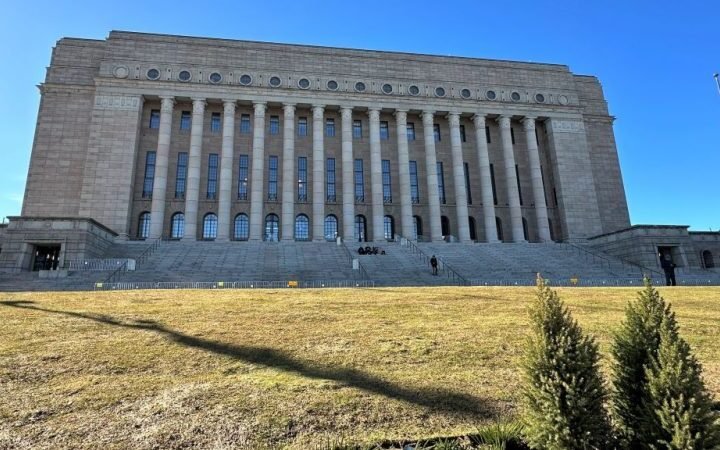EU Moves Toward Sanctions Against Israel Amid Humanitarian Crisis in Gaza
For over two years, the European Union supported Israel amidst its conflict with Hamas in Gaza, despite rising civilian casualties. However, with alarming images of starvation and destruction emerging globally, the Israeli government led by Benjamin Netanyahu is facing increasing isolation. In what may mark the EU’s first formal sanctions against Israel since October 7, the European Commission has backed a proposal to exclude Israeli companies from part of the bloc’s Horizon Europe research program, particularly funds related to defense and dual-use technologies including military startups, reports 24brussels.
This shift reflects a growing impatience among EU member states over the escalating humanitarian catastrophe in Gaza. EU ambassadors are set to discuss the proposal in Brussels, which would require the approval of a qualified majority, specifically 55% of member states representing two-thirds of the EU’s population.
Israel’s foreign ministry has vowed to contest the proposed sanctions, arguing they will only strengthen Hamas. Notably, even Israel’s allies are reconsidering their positions; Dutch Prime Minister Dick Schoof indicated that the Netherlands might support the sanctions if Israel is found in violation of the program’s terms.
The rapid change in sentiment within the EU comes after the Commission recently sought to advance a new aid agreement with Israel, having not previously reached a consensus on any sanction proposals put forth by EU foreign policy chief Kaja Kallas. On Monday, Commissioner Dubravka Šuica acknowledged that the previous aid agreement had only been partially executed due to unsafe conditions for delivery, underscoring the EU’s expectation that Israel must facilitate the delivery of humanitarian aid.
In response to the dire humanitarian conditions, Germany will commence airlifting aid into Gaza, as announced by Chancellor Friedrich Merz, who also did not rule out potential sanctions against Israel.
Germany, traditionally one of Israel’s strongest European allies, is reassessing its stance. Following a security cabinet meeting focused on Gaza, Chancellor Merz confirmed that Germany, France, and the United Kingdom are considering a joint trip to Israel’s foreign ministers.
The diplomatic situation is intensifying beyond Europe as France and Saudi Arabia plan a United Nations conference aimed at promoting a “two-state solution,” which Israel strongly opposes. Ten EU nations have already recognized Palestinian statehood, with Spain, Ireland, and Slovenia doing so amid the ongoing warfare. France has announced its intention to follow suit in September, issuing a pointed critique of Israel.
The US State Department has dismissed the UN conference as a “stunt” that could further empower Hamas, while Israel has chosen not to participate. In the lead-up to this gathering, Palestinian President Mahmoud Abbas proclaimed plans for the first elections since 2006 within the upcoming year, urging Hamas to disarm and asserting that a future Palestinian state would be demilitarized.
Within the European Parliament, attention has also shifted towards developments in the West Bank. Following Israel’s Knesset passing a non-binding resolution endorsing annexation, 58 Members of the European Parliament (MEPs) sent a letter to EU leadership urging effective actions in response.
Concerns Rise Over EU-US Trade Deal
The recently reached framework agreement between the EU and the US has met with skepticism. French Prime Minister François Bayrou described it as “submission,” while Spain’s Pedro Sánchez expressed only muted praise. Chancellor Merz warned of significant repercussions for Germany’s economy as a result of the deal.
Commissioner Maroš Šefčovič, who has engaged in extensive negotiations with the US, suggested that securing American support on Ukraine was a key consideration in the agreement. Meanwhile, Donald Trump has stated during an appearance alongside UK Prime Minister Keir Starmer that Russia has a limited time frame to end its military actions.
Former EU Trade Commissioner Cecilia Malmström characterized the EU’s approach as a “mistake,” criticizing the bloc’s complacency in prior trade discussions, particularly regarding tariffs on EU steel and aluminum implemented during Trump’s presidency.
She also noted that the EU faced intense pressure from critical industries in Germany and Italy to avoid escalating trade conflict.
Bernd Lange, the European Parliament’s leading trade MEP, criticized the deal as “asymmetry set in stone,” emphasizing the need for parliamentary scrutiny before any formal adoption occurs.
Continued developments indicate that pharmaceutical imports from the US will remain tariff-free for now, though US inquiries into dependence on EU drugs may change this status. While Brussels has agreed to relax some restrictions on specific US agricultural imports, EU agri-food exports continue to face Trump’s tariffs.
China Condemns EU Parliament’s Taiwan Visit
In a recent incident, Beijing condemned last week’s visit to Taiwan by a group of MEPs, decrying it as a “serious violation” of the one-China principle and an infringement on China’s internal matters. The delegation included French centrist Nathalie Loiseau and involved meetings with Taiwanese officials and civil society leaders.
China’s EU mission reiterated its opposition to any formal engagements between the European Parliament and Taiwanese authorities, urging the EU to adhere to its political commitments to China and rectify perceived indiscretions.
EU Imposes Tariffs on Ferroalloys
The European Commission has notified four European Free Trade Association (EFTA) countries—Norway, Iceland, Switzerland, and Liechtenstein—of plans to impose tariffs on ferroalloys starting August 19, aimed at safeguarding the EU steel industry. This decision has elicited diplomatic backlash, particularly from Norway.
Important Deadlines for Defence Funding
The deadline for countries to express their interest in accessing the €150 billion SAFE programme, the largest EU-supported loan initiative for arms procurement, is today. Many governments are expected to indicate requested amounts, with roughly 20 countries expressing interest in approximately €100 billion. Notably, Poland is seeking as much as €25 billion intended for joint projects with Ukraine.
The Capitals
BERLIN | Germany faces an anticipated €172 billion budget deficit for the 2027-2029 term, a figure that has risen by approximately €28 billion recently due to increased interest payments and economic stagnation. The Cabinet is scheduled to approve the draft budget for 2026 this week.
PARIS | Prime Minister François Bayrou has criticized the EU-US trade agreement as a “dark day” for Europe, accusing EU officials of capitulating to US demands.
ROME | The local city council has removed a series of AI-generated billboards from the League party that promoted a divisive security bill, citing breaches of advertising norms related to ethnic stereotypes.
MADRID | Spain will dispatch thousands of kilograms of food to Gaza via air, as announced by Prime Minister Pedro Sánchez, in reaction to the urgent humanitarian crisis.
WARSAW | A recent poll indicates 68% of Poles are aware that Poland held the EU Council presidency in the first half of 2025, though only 28% trust it was successful. Despite varied opinions, support for EU membership remains strong.
PRAGUE | Moldova has expelled Czech MEP Ondřej Dostál over security concerns linked to a pro-Russian conference, a decision he deems politically motivated.
BUDAPEST | Hungarian Prime Minister Viktor Orbán ridiculed the EU-US trade agreement, remarking that it reflects a power imbalance at the negotiation table.
BRATISLAVA | Slovakia intends to construct a €15 billion nuclear power facility with US-based Westinghouse without holding a public bidding process, a move currently under EU investigation due to domestic backlash.










